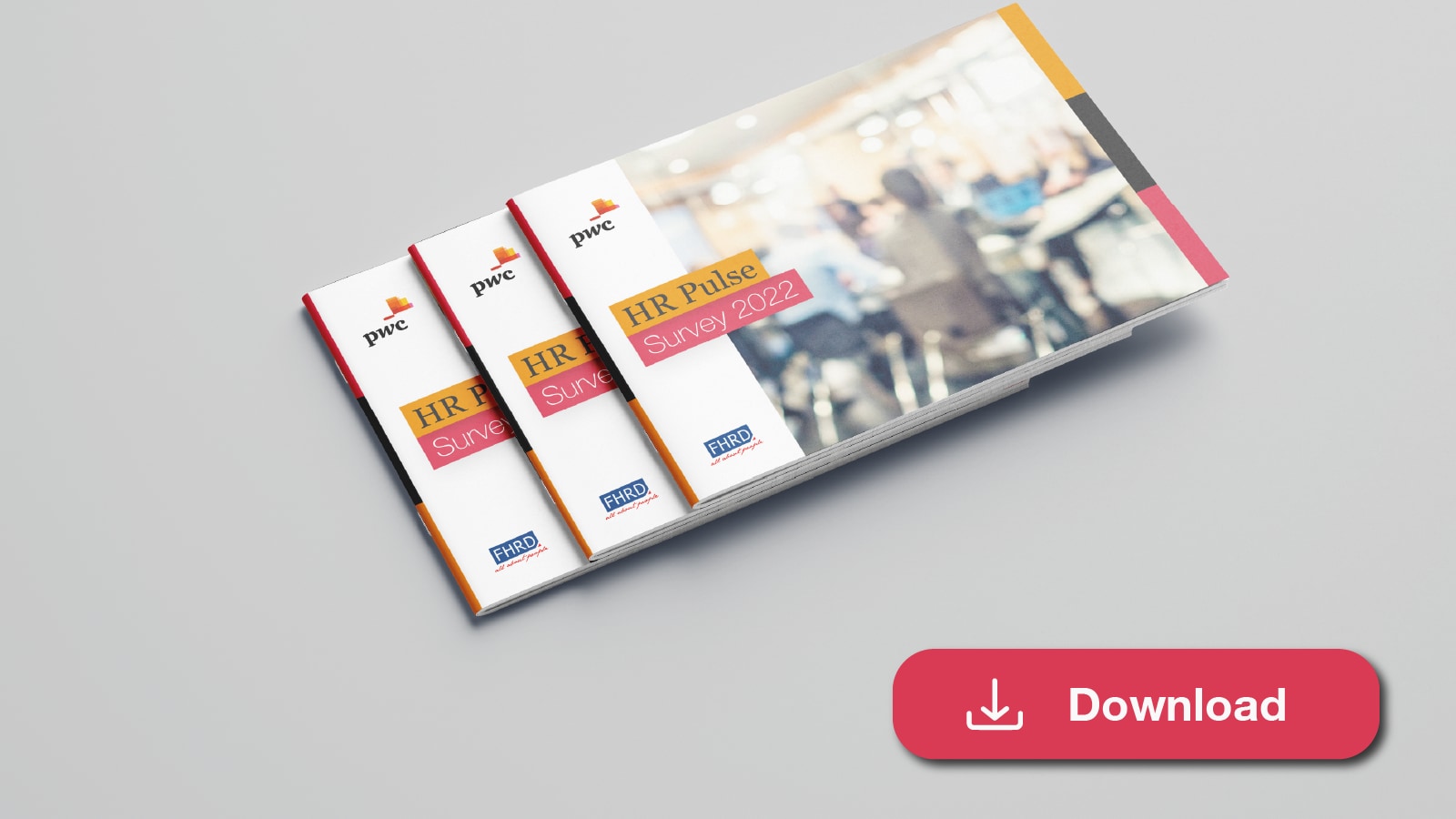Every year, the HR Pulse Survey, a joint exercise carried out by PwC Malta and the Foundation for Human Resources Development (FHRD), looks to identify the key HR challenges being faced by local organisations, with the aim of gaining insight on the priorities for people management going forward.
This year’s eighth edition of the survey focused specifically on understanding the thoughts and views of Malta’s business organisations on the topics of Employer Branding and innovative HR practices, as well as the new key priorities and challenges of the HR function, as new norms have formed following two consecutive years of global turmoil.
The results of the survey shed light on themes such as the most prevalent demands of today’s transformed workforce, the innovative practices being established within the workplace, employer branding and what it means to organisations, as well as other key HR priorities and challenges identified in the current world of work.
Identified HR Priorities & Challenges
Key areas identified as HR priorities in the current work environment in Malta:
The most prevailing people-related concern identified:
This could be linked to an employee’s market with ample employment opportunities in the labour market and changing employee expectations.

Half of respondents identified that one of the main challenges is the high cost of living in Malta, however Malta’s lengthy third country national visa approval process was the #1 most cited concern across almost all sectors.
Innovative HR Practices Being Put In Place
Seeing the HR function as innovative and introducing initiatives to tackle the volatile world of work is critical given the shifts in employee demands and the surmounting challenges faced by businesses.
50% indicated that soft skills training, such as on resilience, was an innovative initiative that has either recently been introduced or will be introduced in the near future, indicating that organisations have seen the need to combat a deficiency in required skills present locally.
And organisations are increasingly introducing flexible employee recognition and appreciation programmes (45%) to combat some of the most prominent people-related concerns.
Organisations continue to embrace remote working, with roughly two thirds of respondents (65%) stating that remote working has become an integral part of their employee value proposition.
Some organisations (20%) are also looking into introducing a four day work week.

A Snapshot On Employer Branding
Which of the below best describes what Employer Branding means to you.
To drive their employer branding initiatives, the majority of respondents are focusing on:
While 59% of respondents indicated that they have a formal EVP, only 16% expressed that they have clearly communicated it throughout their organisation’s channels. 100% of those who claim to have a formal EVP that is well communicated through their organisation’s channels, have seen benefits since its introduction.
31% of responses stated that one of the biggest challenges they experience in employing and retaining foreign workers is competition from other countries in terms of tax incentives and citizenships.
22% of responses stated that one of the challenges they face is a lack of interest in relocating to Malta. A greater focus is required on Malta’s Employer Brand and could be tackled through a nationally coordinated initiative.
Volatility and new demands require the HR function and top executives to more than ever direct their attention towards efforts to increase talent attractiveness, employee retention and their employer brand. There is the need to act now, as this isn’t about the far future - change is already happening and accelerating.
The HR function is vital for the success of an organisation’s business operations, and should be more involved in the introduction of innovative initiatives to transform organisations and enable them to deliver their corporate strategy. Business and HR leaders need to gauge and respond to the changes and prepare their organisations for the future. These leaders must consider if their HR function is ready for the future world of work and evaluate if they are prioritising what is needed enough. Doing so, business and HR leaders can successfully re-shape their HR function to support the organisation going through transformative change.














